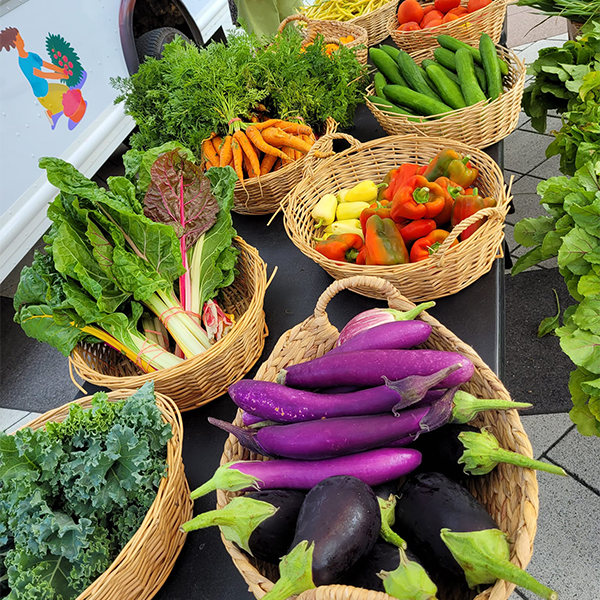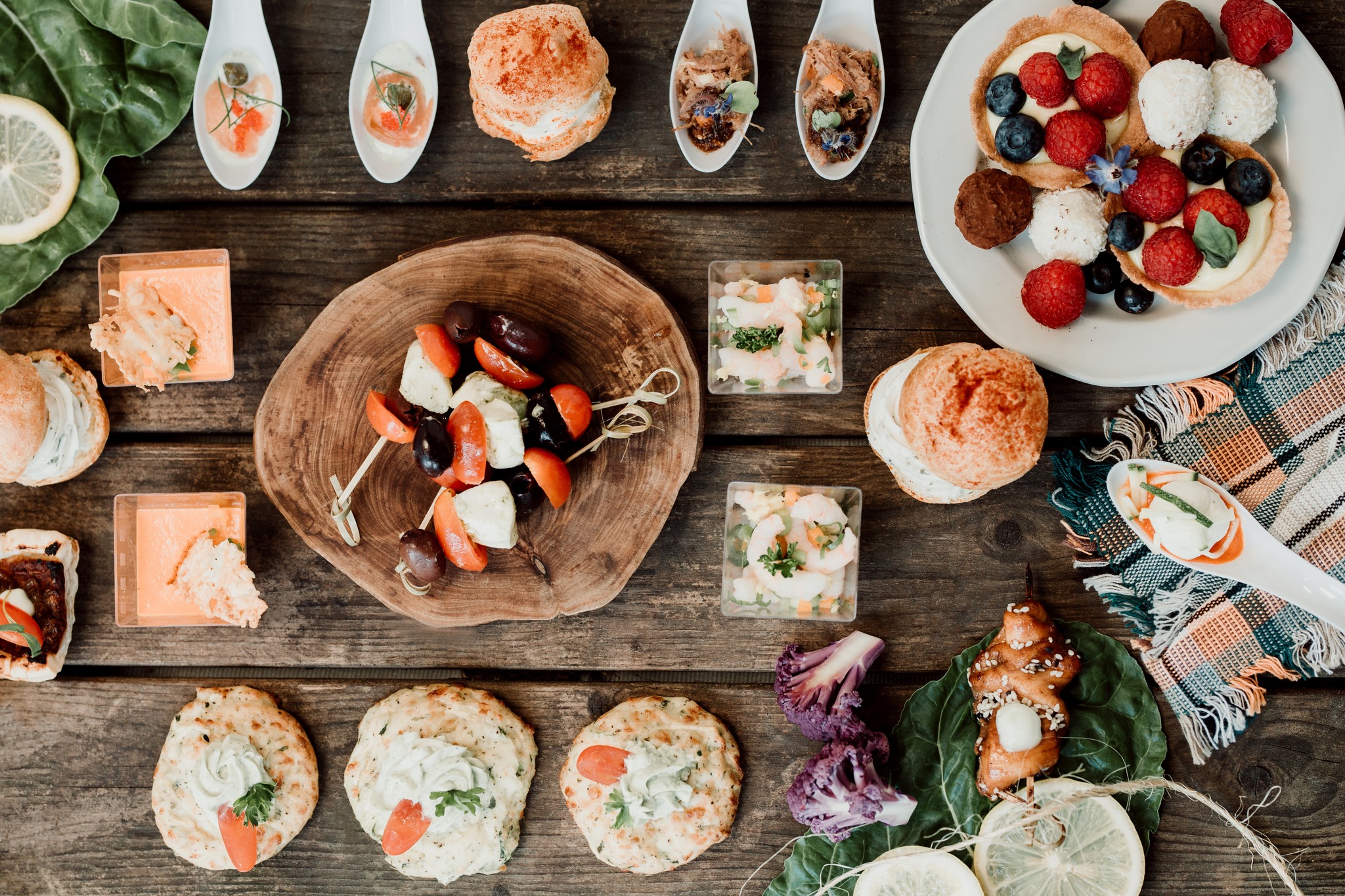
Hochelaga-Maisonneuve’s cooking collective: serving up success!
Located in a borough characterized by food insecurity, Cuisine Collective Hochelaga-Maisonneuve stands out as a multifaceted organization, bringing together collective kitchen spaces, a catering service, a work-integration venture and an agricultural farm.
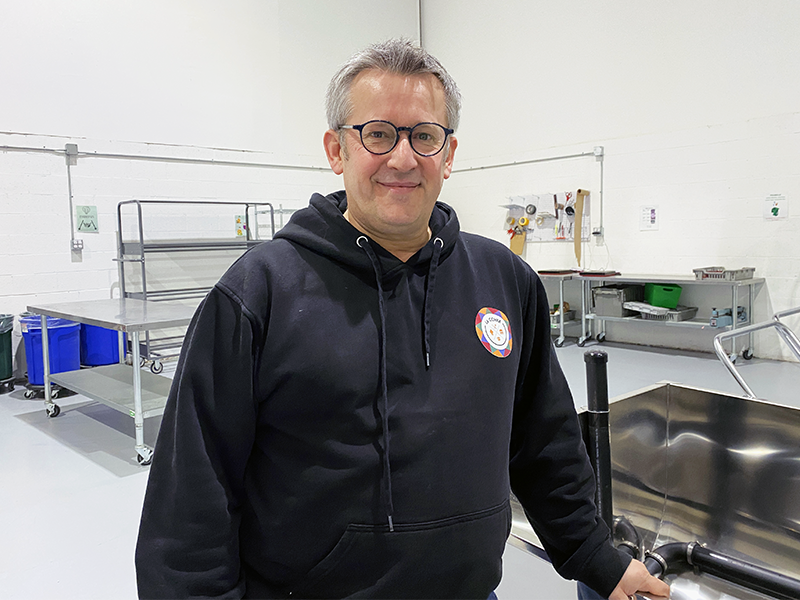
On the boil and developing: impressive growth
Founded in 1986 and supported by the Port of Montreal as part of its commitment to the community, this organizations has steadily grown to keep pace with increasing needs and the dynamism of its management team, which is highly motivated to make a difference.
“I want to change things and see them progress,” said Benoist De Peyrelongue, Managing Director of Cuisine Collective Hochelaga-Maisonneuve (CCHM). A former restaurant professional, Benoist De Peyrelongue moved into the community sector, seeking to combine food with social engagement. As a result, the organization has achieved remarkable growth over the years, adding new strings to its bow to better support the community.
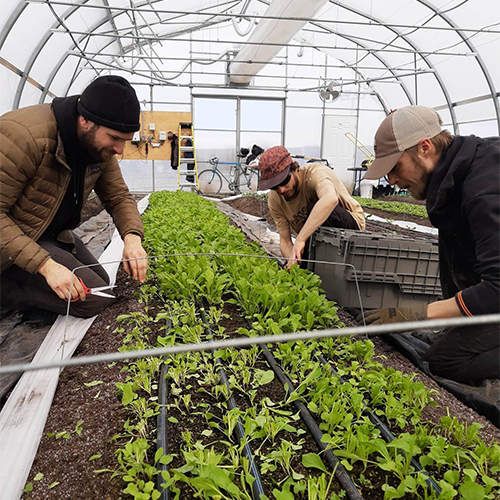 This year’s inauguration of the farm makes it possible to not only grow tonnes of fresh fruit and vegetables right in the middle of industrial zones and heat islands, but also to host a training center, and to create a distribution and circular economy centre, where all waste—peelings, spent grain, wood chips from parks—is turned into compost and fertilizer for the fields.
This year’s inauguration of the farm makes it possible to not only grow tonnes of fresh fruit and vegetables right in the middle of industrial zones and heat islands, but also to host a training center, and to create a distribution and circular economy centre, where all waste—peelings, spent grain, wood chips from parks—is turned into compost and fertilizer for the fields.
In just a few years, the organization has increased its production from three to seven tonnes of vegetables a year. In addition to the 600 square feet (ft2) originally planted on the roof of the parent company, 60,000 ft2 of gardens, including 8,700 ft2 of greenhouses, have been added on land donated from industrial zones in Montreal’s east end. And there’s more to come, as the CCHM aims to reach 220,000 ft2 within the next three years. What’s the goal? Fifty tonnes of locally produced fruit and vegetables within four years, to meet “food security AND food insecurity” needs, Benoist told us. There’s a difference...
A pressing need for practical action
Food security is achieved through group cooking activities on the CCHM’s premises. Citizens and organizations use the facilities to prepare large batches of dishes, which are then shared among participants, reducing costs and overcoming solitude. “Through group cooking, a network of collaboration and social mixing is created. We act as a springboard to independence for vulnerable people,” said Benoist. “It’s a powerful way of bouncing back.”
Meanwhile, the fight against food insecurity involves distributing food products, thus the creation of the Pôle de l'Est with Moisson Montréal in cooperation with various organizations across the territory. Here too, the need is escalating. In the first year, about 70,000 people benefited from this pole. “The face of food insecurity is changing,” Benoist told us. “The network is overwhelmed. We’re trying to understand how to respond collectively to what’s going on. It’s no longer just people in abject poverty. We’re seeing all kinds of people struggling to make ends meet, including students and young professionnals, people who didn’t use much these services before.”
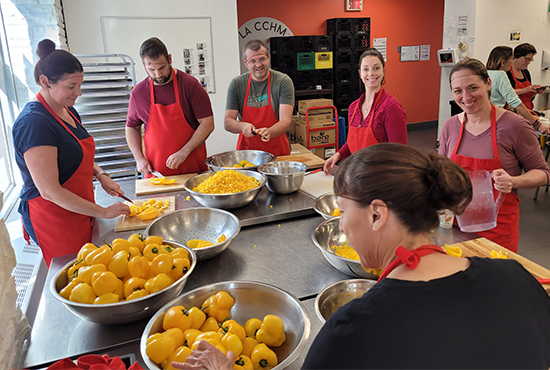
At the same time, the Pôle de l’Est is home to a training and vocational integration facility for people living with neurodevelopmental disorders. Apprentices follow a 14-month course, touching on both cooking and farming, as well as warehouse work and customer service. “We’re talking about insertion from the farm to the fork!” continued Benoist. “The aim is to guide them, to help them choose their path, while respecting their pace and preferences.”
What’s coming next? The creation of a store with flexible pricing, where everyone would pay for food according to their means.
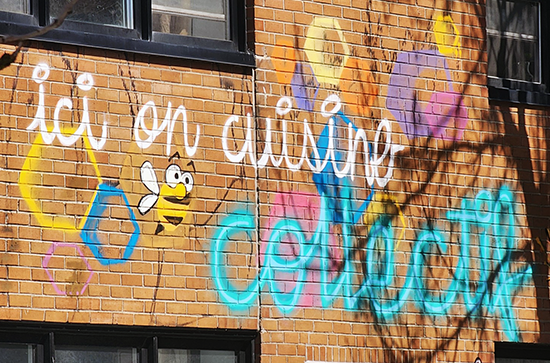 Watchword: collective
Watchword: collective
Around this fresh food, grown, prepared and distributed throughout Montreal’s east end, the organization is motivated by an underlying mission: to gather, bring together and unite. “What interests us is the ability to act collectively. We’re sensing a willingness in the east end. Social enterprise is gaining ground. There’s a collaborative movement developing between companies, businesses and citizens, to support organizations collectively. Bottom, it’s the community as a whole that benefits.”

